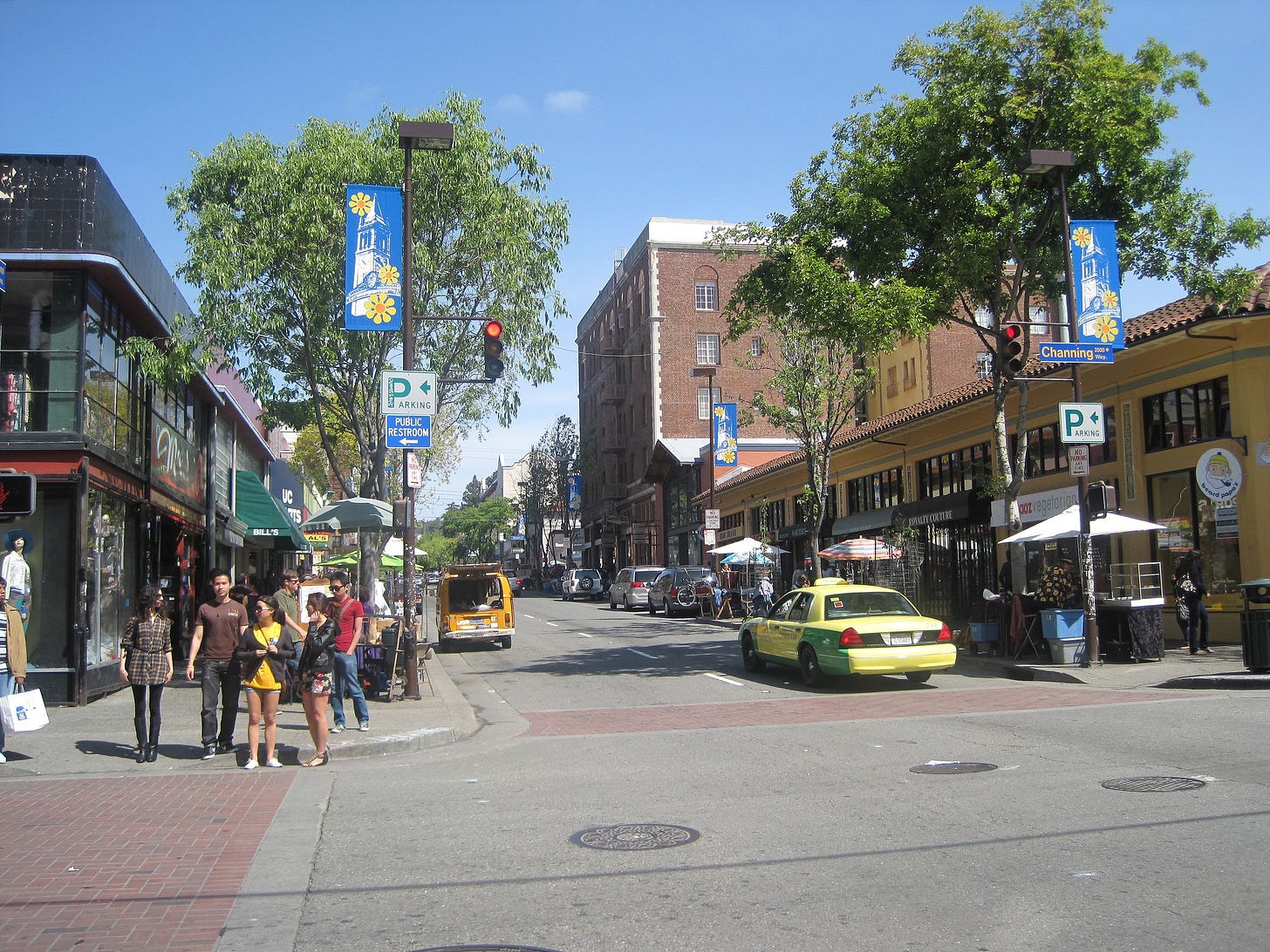EXCLUSIVE: Here's Who Got a Coronavirus Relief Loan in Berkeley
Six University of California-related companies received at least $2 million in Paycheck Protection Program loans combined
About 800 businesses and nonprofit organizations in Berkeley, Calif., received coronavirus relief loans through the Paycheck Protection Program, according to data recently released by the U.S. Department of Treasury and Small Business Administration.
At least six companies and other entities related to or directly affiliated to the University of California, Berkeley, received between $2.35 million and $5.70 million in loans through the program, according to an analysis of the publicly-available data by Write for California. Altogether, these six companies claimed they retained at least 242 jobs combined on their respective Paycheck Protection Program loan applications.
The California Alumni Association received the largest loan among entities related to the university, between $1 million and $2 million, to retain an estimated 95 jobs.
The California Alumni Association is a registered 501(c)(3) tax-exempt nonprofit corporation and claims to be a self-funded organization. It says it relies on alumni support and partnerships with local businesses and corporations, such as Bank of America, Bank of the West, Berkeley, Calif.-founded Peet’s Coffee and others, for its operations. The group also provides scholarships to students at the University of California, Berkeley.
Cal Dining, which manages on-campus cafes, convenience stores, dining halls and restaurants, as a part of the University of California, Berkeley, received a loan between $150,000 and $350,000, to keep 49 jobs. Cal Dining also manages catering and concessions for all on-campus Cal Athletics events, including at California Memorial Stadium, Edwards Stadium and Haas Pavilion.
Similar to the California Alumni Association, many entities affiliated with the university but independent in its operations received loans from the federal coronavirus relief scheme.
The UC Berkeley Center for Executive Education, a unit of the Haas School of Business, and The Faculty Club at UC Berkeley, both borrowed between $350,000 and $1 million to hold onto at least 43 jobs. The Faculty Club at UC Berkeley did not list an estimate of the positions it expects to retain with the relief funds on its loan application.
Mathematical Sciences Publishers, a 501(c)(3) nonprofit publishing company run from the Department of Mathematics at Cal, received a loan between $150,000 and $350,000, to retain 25 positions.
Lastly, the Berkeley Student Cooperative, Inc., received a loan between $350,000 and $1 million to keep 30 jobs. The 501(c)(3) nonprofit is a student housing cooperative independent of the university, and says it provides affordable room and board to more than 1,300 San Francisco Bay Area college and university students. The Berkeley Student Cooperative claims to be the largest student housing cooperative in the U.S.
Four Berkeley, Calif.,-based corporations received the largest loans possible from the Paycheck Protection Program, between $5 million and $10 million. They are Backroads, an operator of active travel tours; Berkeley Cement, Inc., a union concrete contractor; professional audio-equipment manufacturer Meyer Sound Laboratories Incorporated; and O.C. Jones & Sons, Inc., a general engineering and heavy civil construction contractor. Together, they claim they will retain at least 962 jobs.

Telegraph Avenue in Berkeley, Calif., is home to many restaurants and small businesses. (© BrokenSphere / Wikimedia Commons, used with attribution per CC BY-SA 3.0 license)
Some notable Berkeley, Calif., restaurants and small businesses, which received Paycheck Protection Program loans, include:
$2 million to $5 million
Crossroads Trading Co., Inc., the consignment store: 313 jobs
$1 million to $2 million
The Berkeley Repertory Theatre, Inc.: 130 jobs
Pagnol et Cie, better known as Chez Panisse Restaurant, the world-renown restaurant founded and owned by Alice Waters: 24 jobs
Advanced Food Concepts Inc., the company behind the sports nutrition brand GU Energy Labs: jobs retained unlisted on their loan application
$350,000 to $1 million
Rasputin Records, Inc.: 98 jobs
Jupiter LLC, the beer garden and pizza place on Shattuck Avenue: 93 jobs
Saul’s Restaurant Inc., the Jewish deli and restaurant in the Gourmet Ghetto: 67 jobs
Berkeley City Club, operators of a Julian Morgan historic hotel on Durant Avenue: 66 jobs
Mezzo, the reopened salad and sandwich-monger formerly known as Cafe Intermezzo on Telegraph Avenue: 47 jobs
Kirala, Inc., the Japanese robata grill restaurant on Ward Street: 43 jobs
$150,000 to $350,000
Gordo Taqueria #5: 260 jobs
Triple Rock Brewing Co Inc.: 49 jobs
Slivers LLC, the company behind only-one-flavor-a-day Sliver Pizzeria: 38 jobs
Vik’s Chaat Corner, LLC: 31 jobs
Amoeba Music, Inc.: 26 jobs
Berkeley Restaurant Group, the group behind the Michelin Guide-listed Japanese tavern izakaya Ippuku on Center Street: 15 jobs
Moe’s Books: jobs retained unlisted on their loan application
Congress created the Paycheck Protection Program to provide small businesses, generally defined as having 500 or fewer employees, relief during the coronavirus pandemic. However, nonprofit organizations, including churches and other places of worship, and even some venture capital-backed startups are eligible. (Author’s Note: My employer Metromile received a loan between $5 million and $10 million from the Paycheck Protection Program.) Independent contractors, sole proprietors and the self-employed can also apply for loans backed by the Paycheck Protection Program themselves.
The relief program provides a fixed low-interest 1%-rate loan of up to $10 million with the expectation that the funds are used primarily for payroll-related expenses to keep people employed during the coronavirus pandemic.
Borrowers can also use the money borrowed toward interest on debt like mortgages, rent, utilities and group health insurance premiums. The Paycheck Protection Program received a lot of interest and public scrutiny because the loans are eligible for forgiveness under certain circumstances, including if the borrower spends their funds toward these operations costs, and payroll expenses make up 60% of the forgiven amount.


Nice piece of journalism here, Rick. When I read it, I was thinking "man, this must have taken a lot of work".
It's kind of reassuring to see that SOME people are getting loans! Thanks for doing all this work.